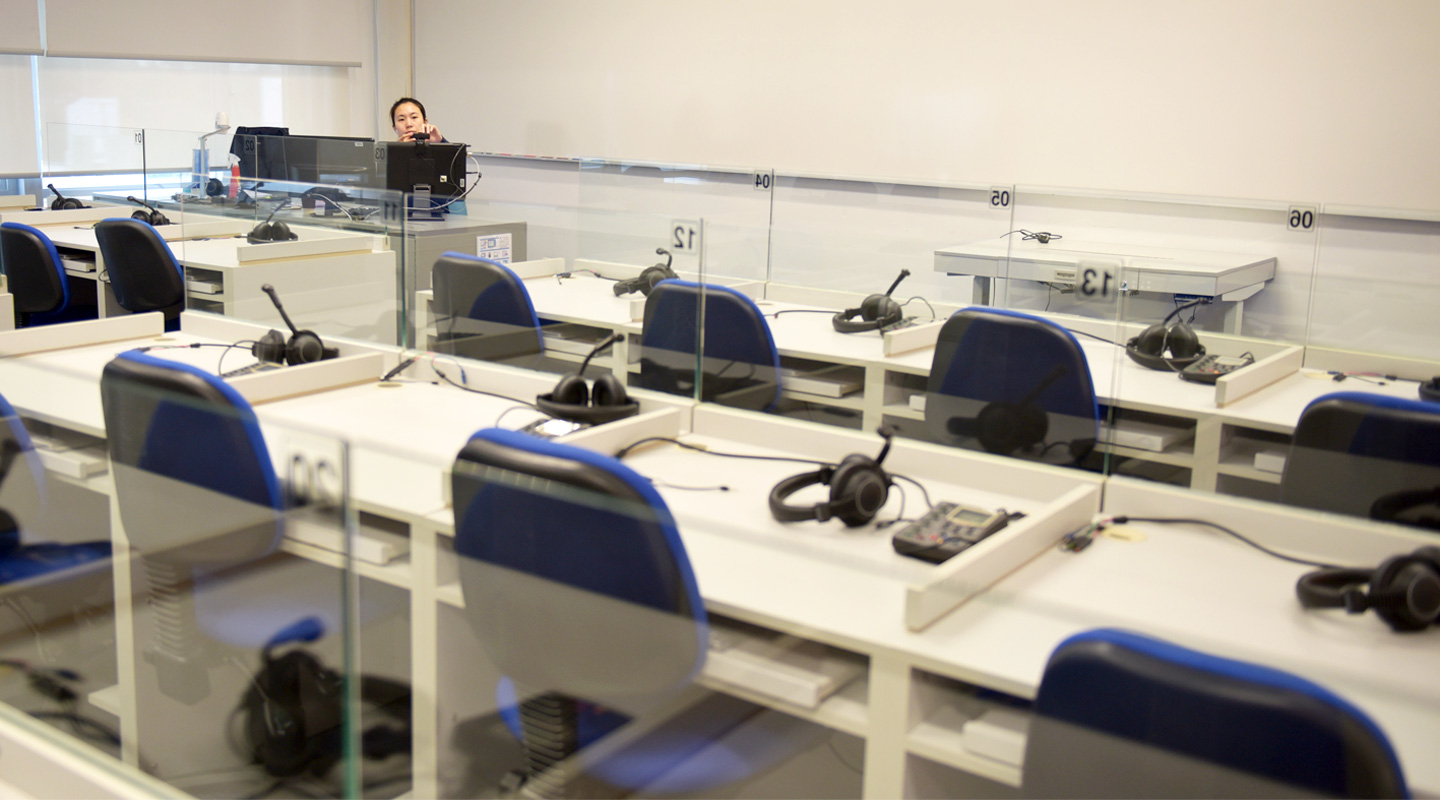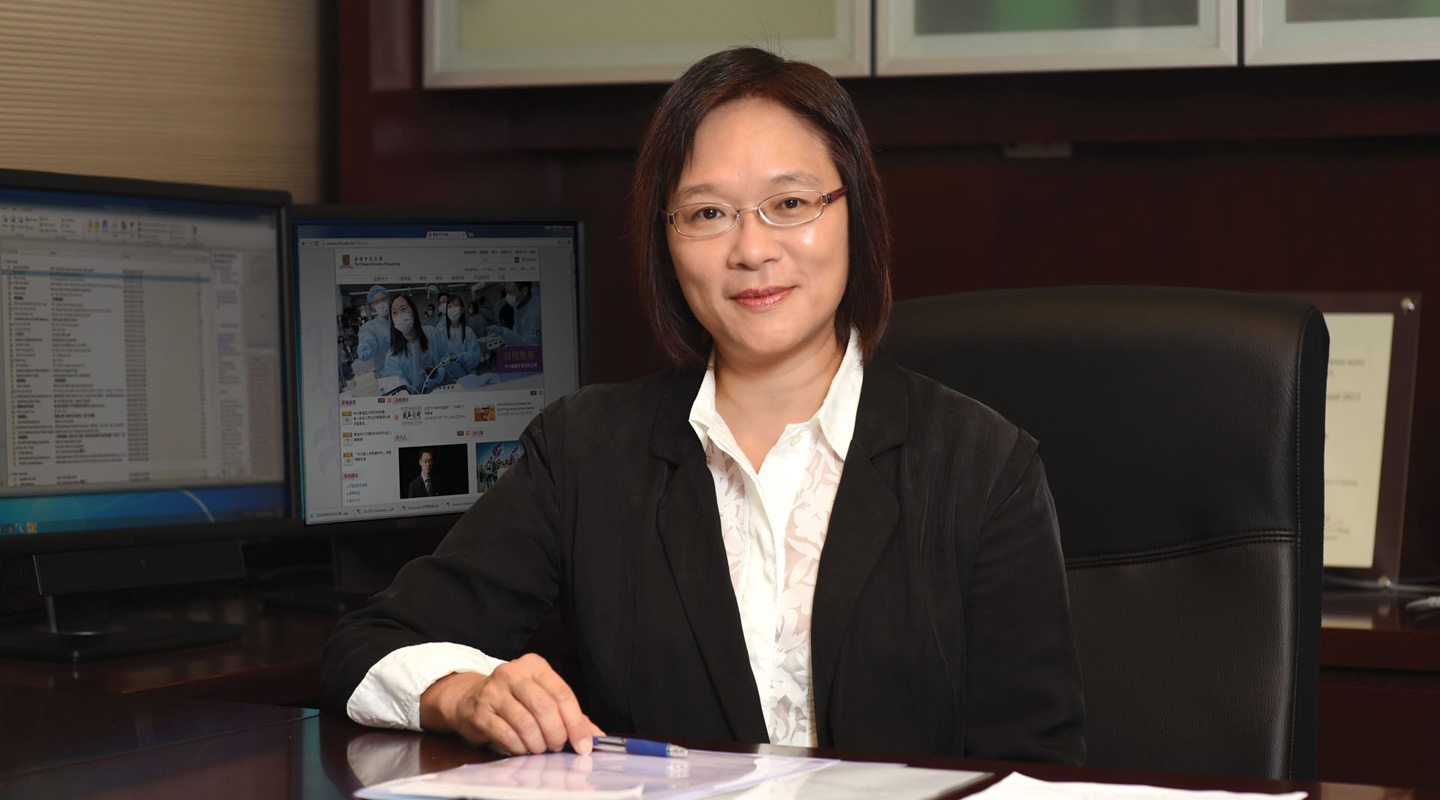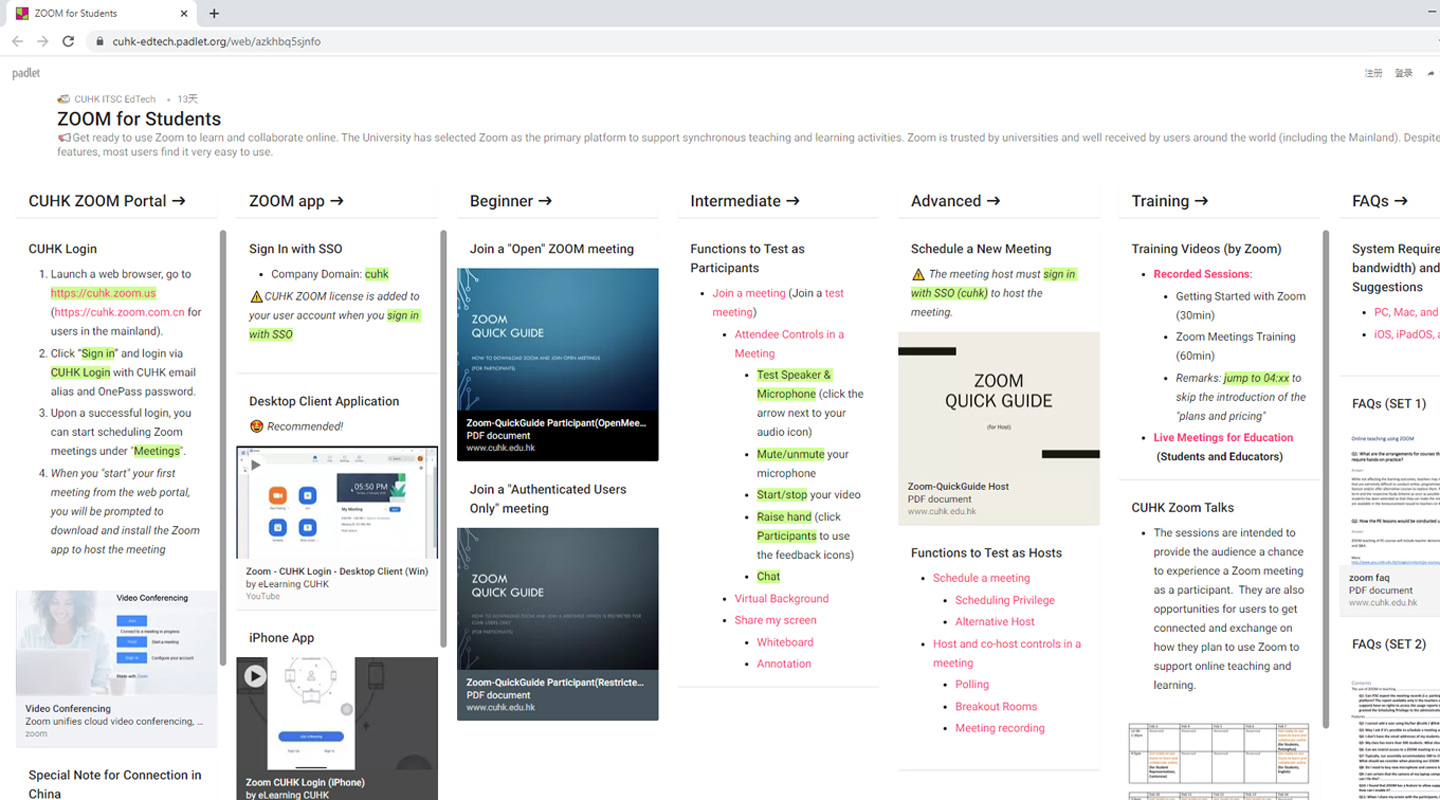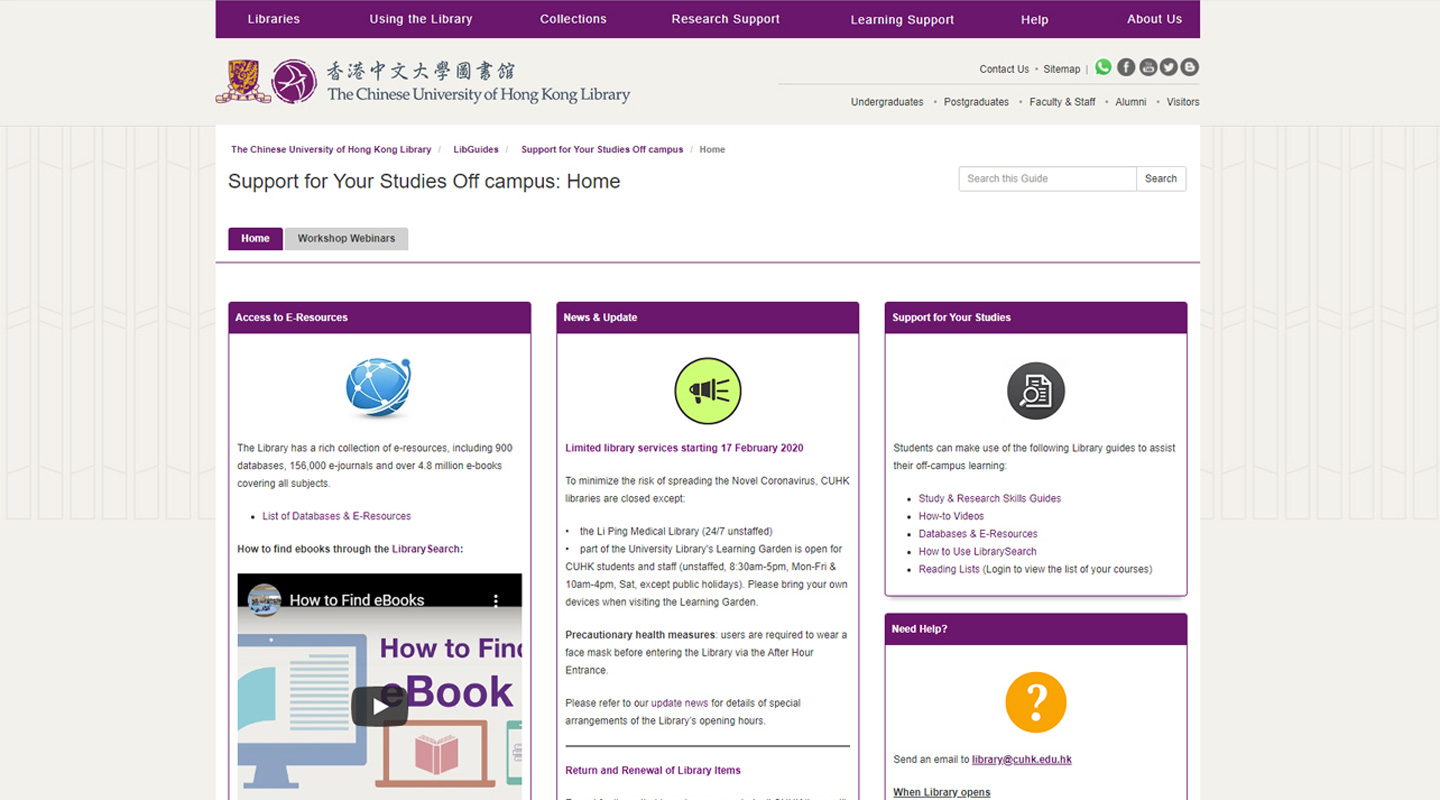Dear readers, With the launch of e-newsletter CUHK in Focus, CUHKUPDates has retired and this site will no longer be updated. To stay abreast of the University’s latest news, please go to https://focus.cuhk.edu.hk. Thank you.
Learning’s Labour’s Lore
How CUHK boots up its e-learning

E-learning is far from unknown or unpracticed at CUHK. We have developed tools like Blackboard, Veriguard, KEEP and UReply, to name a few, which facilitate and ensure the delivery of quality education, enabled and empowered by a solid infrastructure and innovative personnel, to a generation of students tech-savvy and mobile-happy.
When the disruption to the second term of the school year caused by COVID-19 became almost a certainty around the lunar new year holiday, relying on the virtual mode of teaching and learning became both urgent and necessary. When the going gets tough, the tech gets going. Even if face-to-face classes have become fraught with health risks, the lessons must go on. The teachers, the students and the supporting personnel all clicked into gear for taking their teaching and learning activities online when the school term was resumed on 17 February.

Prof. Alan K. L. Chan (photo above), Provost and J. S. Lee Professor of Chinese Culture, states the raison d’être of resorting to a full-scale online learning in a message to all faculty members on 11 February: ‘First, our priority must be to safeguard the health and well-being of our students, staff and faculty. Second, every effort must be made to mitigate the chances of an outbreak on campus...Third, we must ensure that the learning outcomes of every single course are delivered fully, initially through our e-learning platforms.’

Prof. Isabella W. Y. Poon (photo above), Pro-Vice-Chancellor (Education), who leads the full adoption of the virtual mode of teaching and learning, recalled, ‘Our team is committed and self-motivated to go extra miles to support students and teachers whose enthusiasm, desire for excellence, trust, support and encouragement in turn energize the team. I have been much heartened to have received encouraging messages from many colleagues who were keen to work hand-in-hand to support each other to conquer the challenges.’

The teaching and learning delivered online at CUHK relies on Zoom, a video conferencing software that can support large-scale synchronous and non-synchronous activities including both lecture-type and tutorial-type classes.
Ms. Carol Chiu, Director of the Information Technology Services Centre, said, ‘Zoom is cloud-based and not housed in the server on campus. We needed to increase the bandwidth for the internet connection to ensure smooth delivery.’ The University’s efforts to enhance its e-learning capability also include subscribing to a third-party VPN service which will ensure stable connection and better delivery across borders. This is especially useful for teachers and students who find themselves having to stay behind in the mainland cities and recommence the school term from there.
Between 30 January and 14 February, a total of 22 online workshops on the use of Zoom for class purposes were offered to over 9,200 students and over 2,700 teachers and technical and administrative staff from the academic departments and the Faculties.
The Special Funding Scheme for Online Learning was set up to provide timely support to teachers and to encourage them to innovate instructional strategies, e-assessment methods and teaching materials with Zoom and other online learning initiatives. A number of notebook computers are also available for use by needy students.
Not every effort must be made afresh. Some programmes and departments already had a wealth of online materials at their disposal before the onset of the epidemic. The School of Life Sciences, for example, is a pioneer and a veteran in online teaching. Prof. Pang-chui Shaw said, ‘We have been using a lot of online tools and materials. There are lab demo videos, the "LearnBiochem" platform, and "Panopto", a video content management system.’ Online teaching is neither a novelty nor a challenge to them.
And one does not have to turn oneself into a robot to pull off a successful e-class. ‘Online teaching is not all about the technical things,’ said Prof. Tingting Fan of the Department of Marketing, ‘It’s about how you rearrange your lecture, how to ask questions, how to design the group discussions, and even how to design your jokes!’
The teachers can in theory conduct their classes from home or from their offices. Indeed, many of them did. For those who prefer to have a not-so-virtual lectern, some classrooms on campus equipped with the necessary gadgets including webcams have been made available upon request.

The CUHK Library has consolidated its online materials and facilities as well as offering new resources in support of e-learning and teaching. For instance, our staff and students can request an e-copy of an existing library print book if the e-copy is available. For books or journal with no e-version, the Library will try to obtain the licenses for the chapters or articles where possible.
Despite a few teething problems on the first few days, online classes got to a remarkably smooth start, even for classes with over a hundred participants. Some students commented that more of their classmates have participated in the discussion, resulting in a more active or engaging atmosphere, which is always conducive to learning. Even usually reticent students might be more willing to take part via ‘Chatbox’ or find it easier to push the button ‘Raise the Hand’ than really raising a hand. Some students could not help noticing the benefit and convenience of their teachers recording what they have just said or shown and uploading the same onto the ‘Blackboard’ for review and revision.
Since 17 February, an average of over 1,100 e-classes have been held every school day, with participants over 70,000. The average attendance rate is close to 90%. Feedback from teachers and students has been collected by surveys conducted by the Centre for Learning Enhancement and Research (CLEAR). According to Prof. Cecilia Chun, Director of CLEAR, the students are adapting to this mode of learning well and the teachers found that what they had prepared could be fully put to use via Zoom.
Thus far, the signs are encouraging. Professor Poon remains modest and looks into the future: ‘The feedback from teachers and students collected so far is positive and indicates that online teaching is in general acceptable and smooth. The special funding scheme we launched will support our teachers to initiate and share the best practices for online classes, and further facilitate system-level enhancement of the e-learning culture at CUHK.’
TC